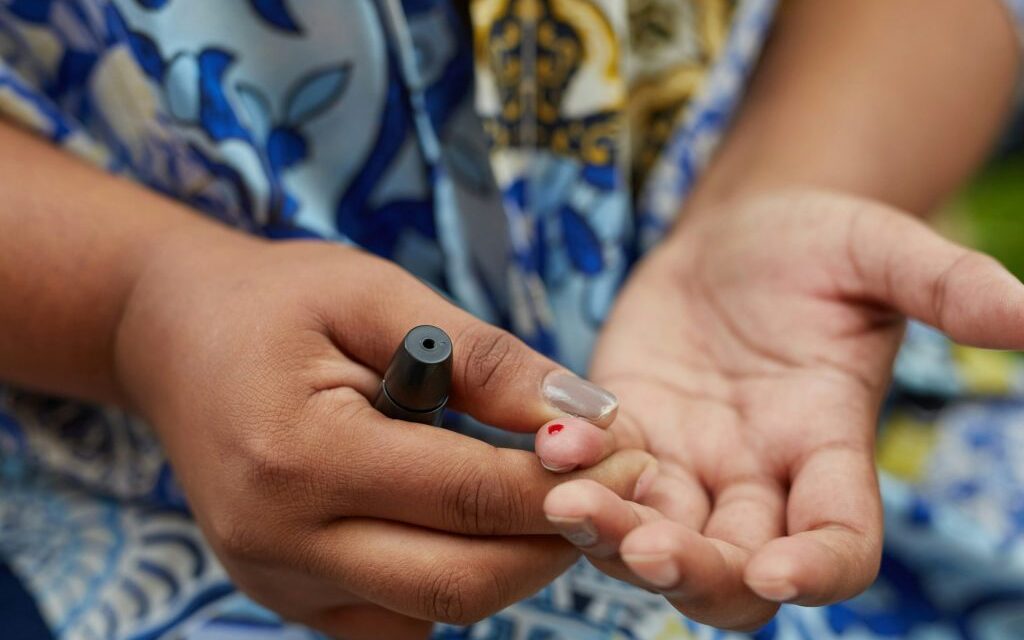By Deborah Bailey
AFRO Contributing Editor
dbailey@afro.com
It’s not your imagination. You really have been seeing more health prevention ads in your social media feed.
If you live in one of Maryland’s high health risk areas for diabetes, heart attack, stroke or other chronic diseases, Maryland’s Department of Health is actively looking for you.

(Credit: Unsplash)
More than one-third of Marylanders are estimated to have pre-diabetes, a condition that can lead to diabetes. Baltimore City, Prince George’s County and Somerset County on Maryland’s Eastern Shore are three areas where Black Marylanders have particularly elevated levels of diabetes and other chronic illnesses such as heart disease, stroke and brain diseases like Alzheimer’s.
Now, health officials are seeking to halt diabetes before it starts in high-risk communities across the state by identifying people who have a high likelihood of developing pre-diabetes and getting them connected with health prevention efforts.
“We’ve been doing diabetes outreach for the past three years. We are promoting prevention activities Marylanders can engage in to avert a diagnosis of type 2 diabetes,” Williams said.
Obesity is a risk factor that accompanies diabetes, according to health experts. In Baltimore, Prince George’s County and Somerset, more than one-third of each county’s adult residents are obese, according to the most recent data from the Maryland Behavioral Risk Factor Surveillance System (BRSFF).
Black Americans are more than twice as likely as White people to develop Type 2 diabetes with the racial gap rising, according to the National Institutes of Health (NIH).
“People who participate in pre-diabetes screening and prevention activities have a 58 percent chance of not progressing to the full disease,” said Williams.
Pre-diabetes occurs in individuals with elevated blood sugar levels, but not high enough for a diagnosis of Type 2 diabetes. Most people with pre-diabetes don’t know they have it because there are no obvious symptoms, according to NIH officials.
“Don’t think pre-diabetes is something to be taken lightly,” said Williams, who cautioned that pre-diabetes can also put you at higher risk for more serious health problems like heart disease and stroke.
Williams urged all adults and teens in Baltimore, Prince George’s County and Somerset County to get evaluated for pre-diabetes and enroll in one of the many support programs offered by the Maryland Department of Public Health.
“Pre-diabetes is a warning to change your diet and lifestyle,” said Tobias Arnold of Silver Spring, Md. who was diagnosed with pre-diabetes in 2016.
“I really didn’t know what that was,” Arnold added. “I thought I just needed to eat less sugar– you know, cut out the candy bars. I didn’t know about carbohydrates. My doctor used generalities and assumed that I would know how to change my diet.”
Williams said there are both on-line and in-person pre-diabetes programs in each county that offer hands-on support to help participants make changes in diet, exercise and other lifestyle decisions needed to avert diabetes.
Williams urges Black Americans to see the onset of diabetes as more than just “a little sugar.”
Complications from diabetes can affect many of the body’s systems and can lead to heart disease, vision loss, kidney disease, stroke, nerve damage, foot damage and amputation and other complications.
“This is a serious disease,” Williams said. “The Maryland Department of Health realizes a diagnosis of pre-diabetes may call for a complete lifestyle change for people. That takes time, support, and community support.”
A-1C Test for Diabetes: diagnosed at an A1C of greater than or equal to 6.5 percent*
| Result | A1C |
|---|---|
| Normal | less than 5.7 percent |
| Prediabetes | 5.7 percent to 6.4 percent |
| Diabetes | 6.5 percent or higher |
Fasting Blood Glucose test: Diabetes is diagnosed at fasting blood glucose of greater than or equal to 126 mg/dl
| Result | Fasting Plasma Glucose (FPG) |
|---|---|
| Normal | less than 100 mg/dL |
| Prediabetes | 100 mg/dl to 125 mg/dL |
| Diabetes | 126 mg/dL or higher |
Reporting for this story is done through the support of a journalism fellowship from the Gerontology Society of America, The Journalists’ Network on Generations and the Commonwealth Fund.
The post Md. Health Department using targeted outreach to tackle pre-diabetes appeared first on AFRO American Newspapers.









